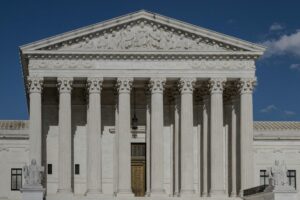Many of our clients inquire concerning how the Telephone Consumer Protection Act (“TCPA”) treats calls or texts that are placed/sent to the wrong number. This is particularly relevant in the case of class action litigation, begging the question: can a class of wrong-number call/text recipients get certified? A recent decision by a federal district court in Illinois addressed that very issue in Abdallah v. FedEx Corporate Services, Inc., Case No. 16-cv-3697 (N.D. Ill.). The Court found that Mr. Abdallah failed to prove that a class of “wrong number” recipients could, in fact, exist. Readers know that we have written extensively about TCPA class action litigation in the past. You can read the Abdallah decision here.
What does the Abdallah decision mean for TCPA wrong number litigation?
For purposes of the TCPA, a wrong number is either: a) a misdialed number; or b) a number that belongs to someone other than the intended call recipient. Further complicating the issue, most companies do not keep a record of “wrong number” responses, particularly when it comes to text messages. For example, a response of “wrong number” to a marketing text message would generally prompt a company to remove the number from its contact list, effectively treating the response the same as if the recipient replied “Stop” to opt out.
By way of background, to certify a class, a plaintiff must prove, among other things: 1) that the plaintiff’s claims as class representative are typical of the claims of the other class members (termed “typicality” under the law); and 2) that the number of people with identical claims is so big that making them all individual plaintiffs would be impractical (“numerosity”). The Court in Abdallah does not explain which type of “wrong number” scenario was at play when defendant FedEx Corporate Services (“FedEx”) mistakenly called Mr. Abdallah multiple times. The bulk of the Court’s analysis focuses on the individual nature of the claims at issue and the inability to determine how many people may have received the same type of “wrong number” calls that Mr. Abdallah did.
On the issue of typicality, the Court found that Mr. Abdallah’s claims arose from a specific course of conduct that resulted in FedEx’s mistaken calls. However, Mr. Abdallah could not provide any proof that anyone else in the universe of those receiving FedEx calls received a call under the same circumstances as he did. Simply put, the Court found that Mr. Abdallah’s claims were too specific to qualify as typical of an entire class of plaintiffs.
As to numerosity, the Court also found that Mr. Abdallah lacked sufficient proof. Specifically, Mr. Abdallah could not demonstrate how many people received “wrong number” calls from FedEx. Unlike many companies, FedEx maintains records of “wrong number” responses to its calls, but Mr. Abdallah still could not provide proof of the number of potential class members who shared his “wrong number” facts. As the Court noted, the evidence did not show whether the class might be made up of 10 or 1,000 individuals.
TCPA wrong number litigation is fact-centric.
How does the Abdallah decision apply to your company?
The Abdallah decision reinforces the idea that TCPA wrong number claims are often dependent on the individual facts at issue. Answers to the following two questions often differ and are dispositive: Did some unknown third-party consent to receive text messages using someone else’s telephone number? Did the telemarketer simply misdial the number? In addition, companies are not legally required to maintain records of their telemarketing to wrong numbers. As mentioned previously, most companies treat a “wrong number” response as simply an opt out. Accordingly, for prospective class action plaintiffs, finding sufficient evidence to achieve the required numerosity and typicality is difficult at best and impossible at worst.
TCPA wrong number litigation might seem like a narrow, even niche, field. In fact, this type of litigation happens more often than you might think, and it only takes one certified class action to expose a company to serious financial repercussions. Here, Mr. Abdallah argued that the “wrong number” class should be over 2,000 people; a class of that size at $500 per violation would create massive potential liability for most companies.
One key to avoiding expensive litigation is to retain counsel with comprehensive industry knowledge. The experienced attorneys at Klein Moynihan Turco can provide the kind of advice that businesses can rely on to stay out of costly and time-consuming TCPA litigation. If you need help evaluating or updating your telemarketing practices and procedures, please email us at info@kleinmoynihan.com or call us at (212) 246-0900.
The material contained herein is provided for informational purposes only and is not legal advice, nor is it a substitute for obtaining legal advice from an attorney. Each situation is unique, and you should not act or rely on any information contained herein without seeking the advice of an experienced attorney.
Attorney Advertising
Photo by NordWood Themes on Unsplash
Similar Blog Posts:
For-Profit University Unable to Defeat TCPA Class Action




